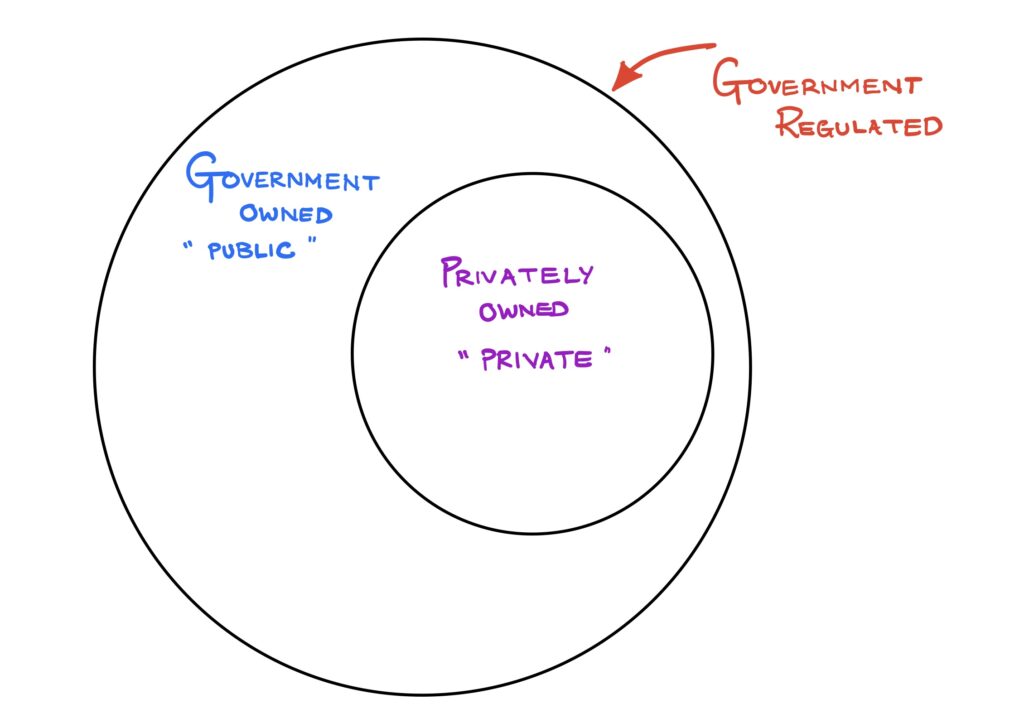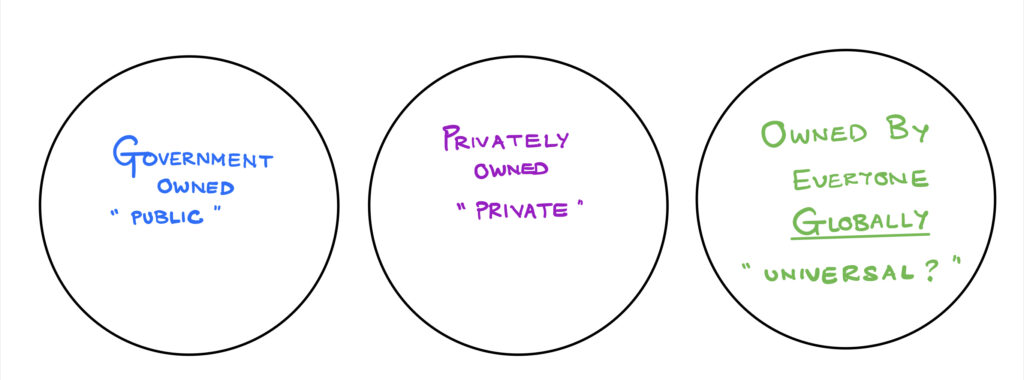An inter-ministerial panel has recommended that “all private cryptocurrencies, except any virtual currencies issued by state, will (sic) be prohibited in India”, the Economic Times reported a couple of weeks ago.
The terminology caught my eye.
We’re used to thinking in binary terms: owned by the government (ostensibly in public trust) or owned by a private corporation (but regulated by the government):

But governments don’t have terms to describe goods that are both non-gov’t and non-private, that are truly community owned.

I don’t know if there is a real world equivalent today for this. Even community-owned and operated parks are still on land that must be either public or private. Even a local cooperative is some sort of a private corporation. Joining such a cooperative requires permission from existing members.
The bitcoin and ethereum and numerous other blockchains are different because while they resemble cooperatives – community developed software running on private hardware powered by privately paid-for resources – it is permissionless. Anyone can run a full or light Bitcoin or Ethereum node, no permission/license required, and be a participant. Ditto with proof of stake blockchains. That is where the analogy with a community park breaks down, and that is what makes all the difference.
This is a new model, one we haven’t seen before. And this is why regulators and governments around the world still think of blockchains in terms of “if we don’t own it, we must regulate it”.